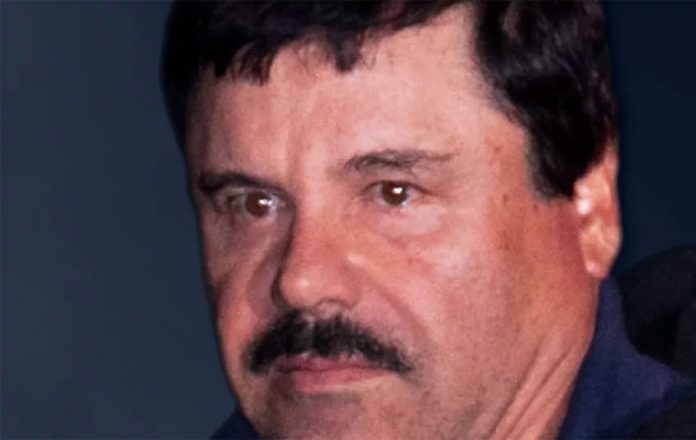Notorious drug lord Joaquín “El Chapo” Guzmán was sentenced to life in prison today on drug trafficking charges by a United States federal judge who accused him of “overwhelming evil.”
Before the sentence was handed down, the 62-year-old former leader of the Sinaloa Cartel told Judge Brian Cogan that his imprisonment in the United States “has been psychological, emotional, mental torture 24 hours a day.”
Guzmán claimed that the jurors who heard his case were influenced by media reports on his trial, an argument that his lawyers also made when requesting a retrial.
“Since the government of the United States is going to send me to a prison where my name will not ever be heard again, I take advantage of this opportunity to say there was no justice here,” he told the New York court.
The court also heard from Andrea Vélez, a former associate of Guzmán, who said that he paid the Hells Angels motorcycle gang US $1 million to have her killed but she escaped to the United States with the help of U.S. authorities.
Handing down the mandatory term of life plus 30 years, Cogan said he would have imposed the harshest possible sentence even if the law had given him any leeway.
Any redeeming qualities the convicted smuggler might have were canceled out by his “overwhelming evil” actions,” he said.
The judge also ordered Guzmán to forfeit US $12.6 billion, an amount that represents the total amount of illegal drugs the jury determined he shipped to the U.S.
The Sinaloa native, who was extradited to the United States in January 2017, was convicted in February on charges of trafficking, organized crime, involvement in multiple murder conspiracies and illegal use of firearms.
Jurors heard from 56 witnesses during the 11-week trial, including many former associates who offered an unprecedented glimpse into the inner workings of the Sinaloa Cartel.
They gave testimony about bribes El Chapo allegedly paid – including payments to former presidents Felipe Calderón and Enrique Peña Nieto, murders he ordered, his life of luxury and womanizing and the Sinaloa Cartel’s smuggling methods, among other details.
The defense portrayed witnesses as unreliable opportunists who in some cases were seeking reductions to their own prison terms.
During the trial and in the months since, Guzmán has been held in solitary confinement in the Metropolitan Correctional Center, a high security prison in lower Manhattan.
Cogan last month rejected Guzmán’s request to be allowed more time to exercise on the jail’s roof after prosecutors warned of an escape risk.
The drug lord escaped twice from prisons in Mexico, once in a laundry cart and once via a 1.5-kilometer-long tunnel.
After today’s sentence was handed down, United States Attorney Richard Donoghue told reporters that “never again will Guzmán pour poison over our border, making billions while innocent lives are lost to drug violence and addiction.”
“We can ensure that he spends every minute of every day of the rest of his life in prison,” he added.
But Guzmán’s lawyers said they will appeal the sentence, arguing that up to five jurors violated the judge’s orders by following the case in the media during the trial.
“All we had asked for is a fair trial. I’m not here to tell you that Joaquín Guzmán is a saint . . . Whatever you think of Joaquín Guzmán, he still deserves a fair trial, everybody does in America . . .” said Jeffrey Lichtman.
